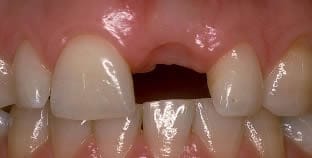What is Root Canal Therapy?
Root Canal Therapy is the removal of the nerve tissue from within a tooth, the cleaning and disinfection of the spaces the nerve used to occupy (called the root canal), and the filling of these spaces with an inert root filling material. The root of the tooth is not removed, only the nerve tissue inside it is.
Why does my tooth need root canal therapy?
Your dentist has identified that the nerve in your tooth is either dead or dying, and has recommended root canal therapy in an effort to treat or prevent infection and pain, whilst at the same time attempting to preserve the tooth as a functioning unit in your mouth. Sometimes root canal therapy is required when a tooth is planned to be heavily restored, where such restoration would lead to death of the nerve (called ‘elective root canal therapy’).
Are there alternative options to root canal therapy?

The alternative to root canal therapy is extraction, where the whole tooth is removed. This may seem like a quicker and simpler option but the loss of the tooth can have more complex consequences in the longterm.
Eventual replacement of a missing tooth (e.g. with a bridge or implant) is more expensive and time consuming than preserving and restoring the natural tooth.
If the pain in my tooth goes away, do I still need treatment?
The pain associated with an infected tooth nerve can go away either by itself, or after having a course of antibiotics. The tooth may remain pain-free for many weeks or months, but eventually the symptoms will return and are likely to be more severe on the next occasion. The longer an infected nerve is left untreated, the lower the success rate rate for saving the tooth.
Will my tooth go black after root canal therapy?
Teeth do not discolour because of root canal therapy. Teeth only go black if there has been internal bleeding in the tooth such as may happen after trauma - in these cases timely root canal therapy should actually prevent the tooth becoming discoloured.
Is root canal therapy always successful?
Root canal therapy will never come with a 100% guarantee of success for saving a tooth, however modern root canal techniques give us very high success rates in most cases. Each clinical situation is different and your dentist will give you guidance on the likely-hood of success or failure of the treatment of your tooth, and may recommend referral to a specialist if particular difficulties are anticipated.
How is root canal therapy carried out?
Root Canal Therapy is performed under local anaesthetic, where the tooth is numbed with a small injection. A rubber dam or sheet is applied to the tooth to isolate it from the rest of the mouth, to prevent contamination by the bacteria that normally live in the mouth. An access hole is cut in the tooth, usually through the biting surface, into the space where the nerve of the tooth sits.
A combination of hand and rotary files are used to remove the nerve tissue and shape the canals or spaces where the nerve used to be. These spaces are disinfected with a mixture of chemicals during the shaping process. A combination of electronic devices and x-rays may be used to determine the precise length of the roots of the tooth, so we know how deep we need to go in the cleaning and filling processes. An inert material is then packed into the cleaned root canal right to the tip of the root. The access hole is then sealed to protect the root filling from contamination. Some teeth have more than one root canal, and the procedure will need to be carried out on each canal present.
Is root canal therapy painful?
Root canal therapy should not be painful. Your dentist will check that the tooth is adequately numb before commencing the treatment. Occasionally there will be some mild to moderate discomfort after the treatment, when the numbness wears off. This typically lasts for a few hours to a few days at most and is easily managed with painkillers, if needed.
What follow-up treatment will my tooth require?
Your dentist will advise you of what longterm treatment and monitoring your tooth will require. If you are having root canal therapy on a pre-molar or molar tooth, you will need to have a crown restoration once your dentist is happy that the root canal therapy has been successful and the tooth has settled. This is because there is a high risk of fracture of back teeth that have been root-treated. The crown restoration is designed to help prevent fracture of the tooth and to keep it strong enough for chewing for many years.
What are the risks of root canal therapy?
Root canal therapy is a very safe and relatively straight forward procedure. However, some complications may arise, especially if the roots of the teeth are very curved and/or narrow. Complications that may arise during the procedure include:
- Perforation through the side wall of the root
- Fracture of fine instruments within the canal
- Fracture of the root of the tooth
- Failing to remove all the nerve tissue
Risks exist even after root canal therapy has been completed. These include:
- Recurrent infection with associated pain
- Fracture and potential loss of the tooth
Your Dentist at Apollo Dental in Southend will advise you of the risks of complications specific to your tooth before commencing treatment. He/she will take appropriate measures to ensure that the risks are kept to an absolute minimum. If, in their opinion, there is a reasonably high risk of complication, they will offer you a referral for specialist treatment.
If you have any other questions or concerns, please speak to your Dentist before making your final decision on the treatment you would prefer.

